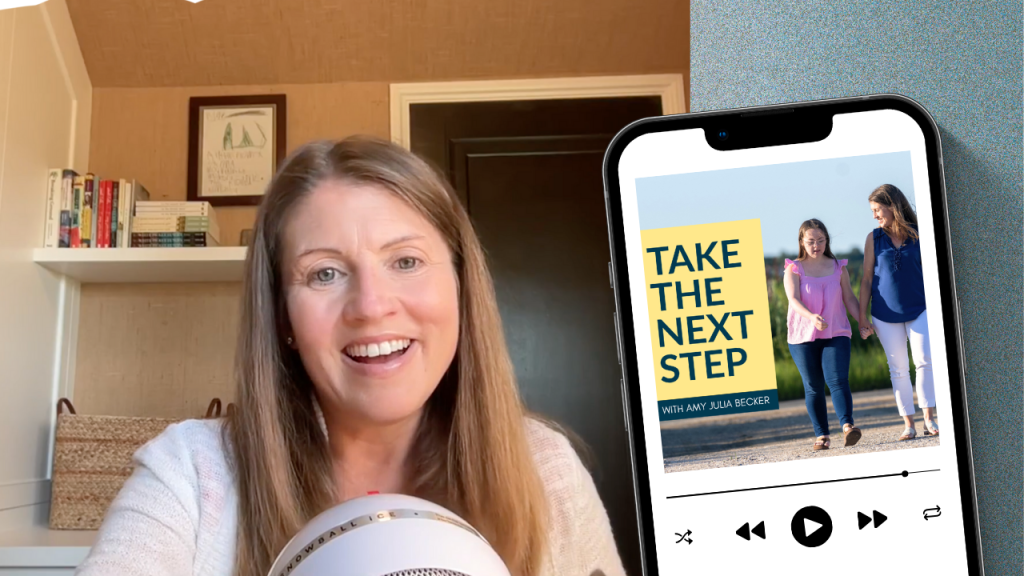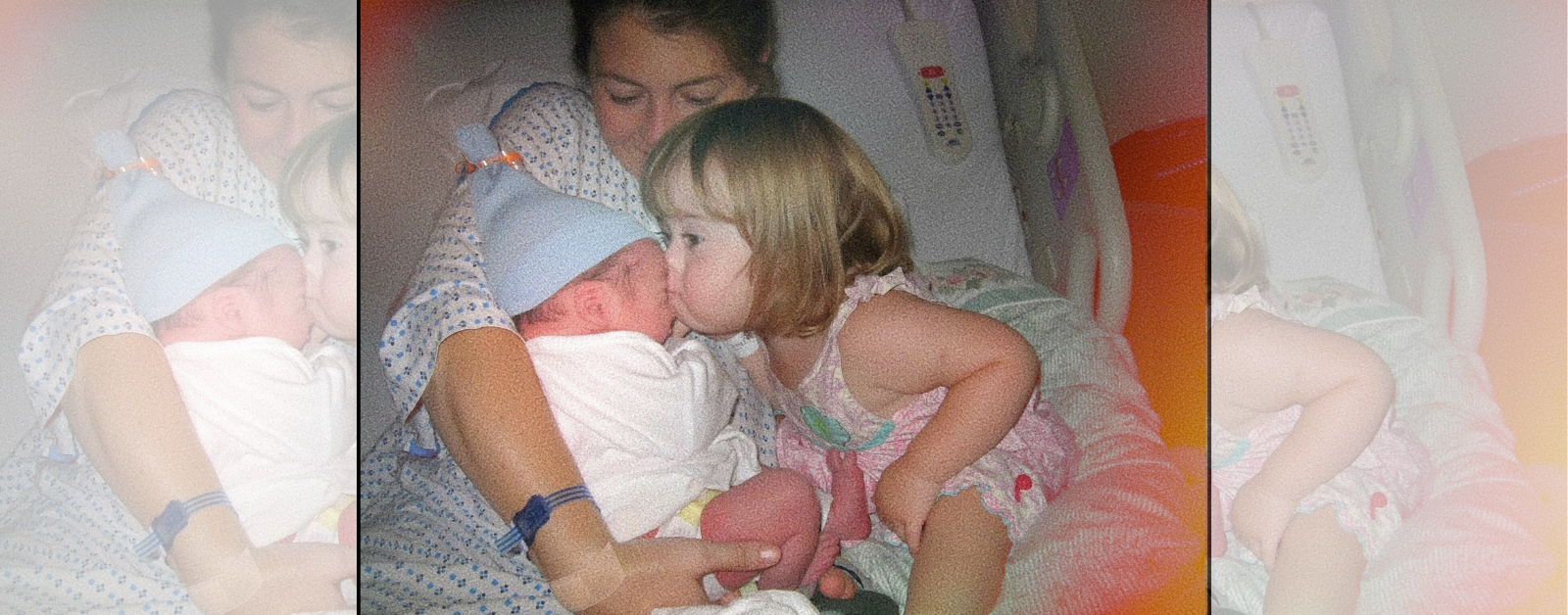Our limits may hold the secret to flourishing. • Before I get into this week’s message, I want to thank all of you who participated in choosing a logo for the new, upcoming Take the Next Step podcast! We are so excited to bring you a podcast for families experiencing disability in collaboration with our friends at Hope Heals. Stay tuned for more information!

Bioethics and Fullness of Life, Delight, and Love
And now, I should probably warn you that I am wading into bioethics territory today. My interest in these questions is not simply intellectual, and it’s not primarily about justice for the most vulnerable among us (as much as I care about such things). My concern surrounding bioethical questions related to reproductive technology, care for the disabled, and physician-assisted dying has everything to do with wanting fullness of life, delight, flourishing, and, over and underneath all of it, a world held together by love. If we eradicate the most vulnerable people from our society, we move away from a world anchored in joy, hope, and love.
A few weeks back, I listened to a conversation between Ross Douthat and Noor Siddiqui. Siddiqui is the founder of Orchid, a company which promises to help couples select embryos for IVF implantation based on their likelihood of developing a slate of diseases and/or disabilities. She assumes:
- that life is better without disability or disease,
- and that we should all avail ourselves of the option of selecting embryos without disability or disease.
She also assumes that life is to be controlled from the outset and rejected when it involves, or is likely to involve, medical complications. (She does not speak to the thought that parents might also select for features like green eyes or tall stature or other aesthetic characteristics.)
I assume, in contrast, that disability is a natural aspect of the human condition that all of us will experience—either temporarily or permanently—in our bodies and/or minds. As my friend Sara Hendren said to me recently:
“Disability is like a stress test for our understanding of what it means to be human.”
In other words, if you take your assumptions about our humanity, disability puts those assumptions under pressure.
What I (Wrongly) Assumed About “Ideal” Humans
When Penny was first born, I assumed that the ideal human had average or “better than average” intellectual ability. I was wrong. Since then, I’ve come to believe that humans with intellectual disabilities contribute great gifts to me and to our society. There is no ideal amount of or type of intellectual ability. There are simply particular humans with particular offerings and particular needs. And those offerings and needs prompt questions to all of us:
- Will we learn to cherish and receive one another as gifts?
- Or will we be people who control and critique and reject one another based on distorted ideas about what it means to be human?
Rachel Roth Aldhizer recently wrote about her four-year-old disabled son, David, whose rare condition requires nearly constant care. She describes him this way:
“David does not walk, talk or eat independently. He is visually impaired and has hearing loss. He has an unrepaired cleft palate open to protruding brain tissue, covered by a thin layer of mucous membrane. Developmentally, David is like a 10-month-old baby. He is our joy, and it is our privilege to parent him.”
She goes on to say:
“How we care for our most vulnerable reveals what we believe about ourselves… At one point or another most of us will lose our independence, health, rationality and will. Eventually we will rely wholly on someone else to care for us. Dependence, weakness, need of others: These are features, not bugs, of the human experience.”
These are features, not bugs, of the human experience.
Who Gets to Matter?
I’m also reading an excellent essay in the Atlantic about MAID (medical assistance in dying) in Canada. Eliana Plott Calabro tells a story of a man living in a long-term care facility. He is feeble, and blind, and lonely. He decides to avail himself of MAID. Then, once he tells his family about this decision, they begin to visit him again. At this point, he realizes he does not want to die. He rescinds the request for MAID.
He doesn’t need to regain his previous bodily strength or his eyesight in order to experience a good life right now. But he does need relationships. He needs love.
Receiving disabled people as contributors who matter benefits all of us. It also alleviates the majority of the suffering associated with disability. But technology that allows us to choose some embryos and reject others, choose some fetuses and reject others, extend the life of some humans but support the death of others, creates a social hierarchy in which some people matter more than others, some people are more deserving than others, and all of us are competing with each other rather than understanding our need for one another.
The people who advocate for selecting embryos and ending life often do so with the intention of care. But controlling life stands in opposition to receiving life as a gift. Exerting power over humans distorts the invitation we have to live in relationships of love. Love does not depend upon physical or intellectual ability. It depends upon vulnerability and need, giving and receiving as we are, and a willingness to care for one another over time. Love anchors us and holds us and returns us to our full humanity.
Needy, vulnerable, limited. Beloved, beautiful, blessed. Humans.
I’d love to hear from you: What do you think makes life worth living? How do you see dependence? Is it a “feature” or a “flaw” of being human?
Let’s stay in touch. Subscribe to my newsletter to receive weekly reflections that challenge assumptions about the good life, proclaim the inherent belovedness of every human being, and envision a world of belonging where everyone matters. Follow me on Facebook, Instagram, and YouTube and subscribe to my Reimagining the Good Life podcast for conversations with guests centered around disability, faith, and culture.



